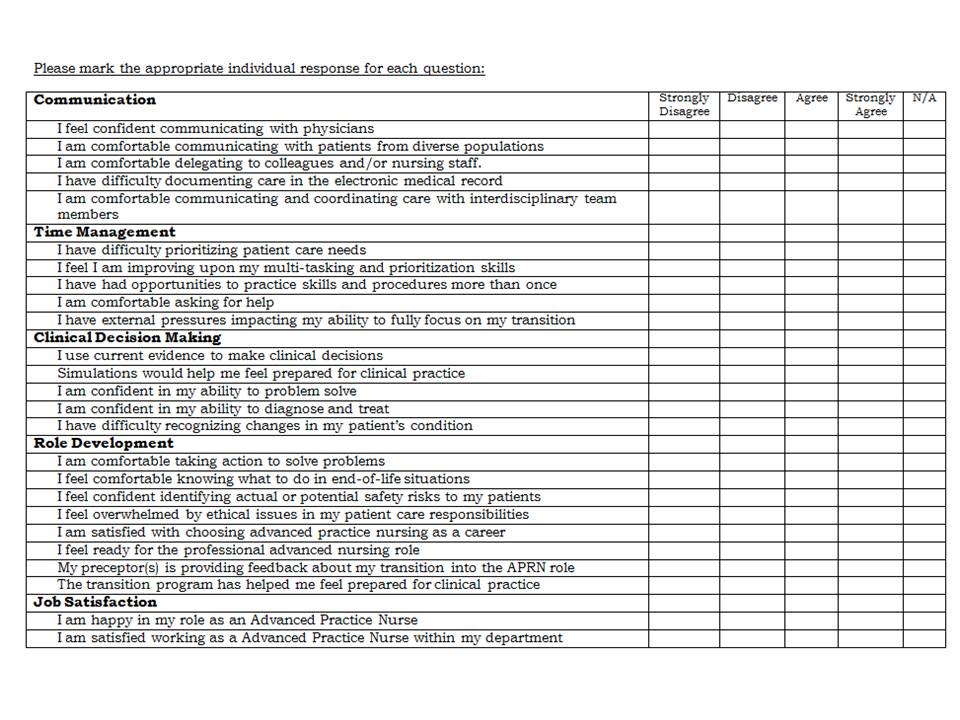Background:
The institute of Medicine’s (IOM) landmark report, “The Future of Nursing: Leading Change, Advancing Health” outlines recommendations that position nurses to influence the future of health care. Implementation of nurse residency programs is one of the recommendations. In particular the report states “health care organizations should take actions to support nurses’ completion of a transition-to-practice program (nurse residency) after they have completed a prelicensure or advanced practice degree program or when they are transitioning into new clinical practice areas”.
Purpose:
Advanced Practice Registered Nurses (APRNs) are expected to deliver care in a model that is fast-paced and demanding, involving complex patients in the primary and acute settings. The transition from a registered nurse to an APRN is often filled with anxiety and self-doubt. As the Affordable Care Act is implemented and the need for APRNs increases, a program that will provide support for APRNs as they transition to practice is vital.
Description:
A group of APRNs representing diverse specialties and various levels of experiences convened as a task force. The group reviewed literature and formulated a year-long program that will offer education and mentorship to support novice APRNs. The program consists of ten workshops taught by content experts. There is didactic medical lectures, case studies, professional development topics, and encompasses a time for reflection and networking opportunities. The program will be evaluated at 0, 3, 6, and 12 months. Evaluation metrics will include job satisfaction and retention rates. Month 0 and 3 evaluations have indicated the program has positively affected APRN confidence, job satisfaction, and retention. Month 6 and 12 of the program evaluations are pending.
Conclusions:
A Transition to Practice Program is necessary for the successful integration of novice Advanced Practice Registered Nurses into their new role as Advanced Practice Providers. There is a projected increase in the number of APRNs nationwide, providing quality care to various populations. Ensuring novice APRNs are provided with the needed resources for success is essential. The program has been successful to date, after 3 months of implementation. Participating practitoners have exhibited an increase in knowledge base, professional resources, role confidence, job satisfaction, and job retention.
Note: Image attached is an example of a section of the Readiness for Practice Survey used to evaluate the Transition to Practice Program.
